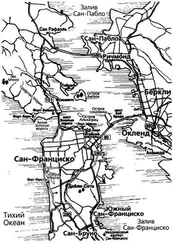Wyatt-Turner dropped his voice, speaking so softly that the radio operator couldn’t overhear.
‘And Operation Overlord, sir?’
‘Operation Overlord,’ Rolland murmured. ‘Yes, we can write that off, too.’
‘Intelligence is the first arm of modern warfare,’ Wyatt-Turner said bitterly. ‘Or has someone said that before?’
‘No intelligence, no war.’ Admiral Rolland pressed an intercom button. ‘Have my car brought round. Coming, Colonel? To the airfield?’
‘And a lot farther than that. If I have your permission, sir.’
‘We’ve discussed it.’ Admiral Rolland shrugged. ‘I understand how you feel. Kill yourself if you must.’
‘I’ve no intention.’ Wyatt-Turner crossed to a cupboard and took out a Sten gun, turned to Rolland and smiled: ‘We may encounter hostiles, sir.’
‘You may indeed.’ There was no answering smile on the Admiral’s face.

‘You heard what the man said?’ Smith switched off the transmitter, telescoped the aerial and glanced across at Schaffer. ‘We can pull out now.’
‘Pull out now? Pull out now?’ Schaffer was outraged. ‘Don’t you realize that if we do they’ll get to Mary inside twelve hours.’ He paused significantly, making sure he had all Smith’s attention. ‘And if they get to her they’re bound to get to Heidi ten minutes later.’
‘Come off it, Lieutenant,’ Smith said protestingly. ‘You’ve only seen her once, for five minutes.’
‘So?’ Schaffer was looking positively belligerent. ‘How often did Paris see Helen of Troy? How often did Antony see Cleopatra. How often did Romeo–’ He broke off then went on defiantly: ‘And I don’t care if she is a traitor spying on her own people.’
‘She was born and brought up in Birmingham,’ Smith said wearily.
‘So who cares? I draw the line at nothing. Even if she is a Limey–’ He paused. ‘English?’
‘Come on,’ Smith said. ‘Let’s return this radio. We may have callers soon.’
‘We mustn’t be raising too many eyebrows,’ Schaffer agreed.
They returned the radio, locked the left luggage office and were just moving towards the station exit when they were halted by the sound of truck engines and a siren’s ululation. They pressed back against a wall as headlights lit up the station entrance. The leading truck came to a skidding halt not ten yards away.
Schaffer looked at Smith. ‘Discretion, I think?’
‘Discretion, indeed. Behind the booking office.’
The two men moved swiftly alongside the tracks and hid in the deep shadows behind the booking office. A sergeant, the one who had organized the search along the Blau See, came running through the entrance, followed by four soldiers, located the left luggage office, tried the door handle, reversed his machine-pistol and hammered the lock without effect, reversed his gun again, shot away the lock and passed inside, torch in hand. He appeared at the doorway almost at once.
‘Tell the captain. They didn’t lie. The Engländers’ gear is here!’ One of the soldiers left and the sergeant said to the three remaining men: ‘Right. Get their stuff out and load it up.’
‘There goes my last pair of cotton socks,’ Schaffer murmured mournfully as their rucksacks were taken away. ‘Not to mention my toothbrush and–’
He broke off as Smith caught his arm. The sergeant had stopped the man carrying the radio, taken it from him, placed his hand on it and stood quite still. He was directly under one of the small swinging electric lights and the expression on his face could clearly be seen to change from puzzlement to disbelief to complete and shocked understanding.
‘Kapitän!’ the sergeant shouted. ‘Kapitän.’
An officer came hurrying through the station entrance.
‘The radio, Kapitän! It’s warm, very warm! It’s been in use inside the last five minutes.’
‘In the last five minutes? Impossible!’ He stared at the sergeant. ‘Unless–’
‘Yes, Herr Kapitän. Unless.’
‘Surround the station,’ the officer shouted. ‘Search every room.’
‘Oh God!’ Schaffer moaned. ‘Why can’t they leave us alone?’
‘Quickly,’ Smith said softly. He took Schaffer’s arm and they moved through the dark shadows till they reached the ladies’ cloakroom. Careful not to rattle his skeleton keys, Smith had the door open in seconds. They passed inside and locked the door behind them.
‘This won’t look so good in my obituary,’ Schaffer said dolefully. There was a perceptible edge of strain under the lightly-spoken words.
‘What won’t?’
‘Gave his life for his country in a ladies’ lavatory in Upper Bavaria. How can a man RIP with that on his mind? . . . What’s our friend outside saying?’
‘If you shut up we might hear.’
‘And when I say everywhere, I mean everywhere.’ The German captain was barking out his commands in the best parade-ground fashion. ‘If a door is locked, break it open. If you can’t break it open, shoot the lock away. And if you don’t want to die in the next five minutes, never forget that these are violent and extremely dangerous men almost certainly armed with stolen Schmeisser machine-pistols, apart from their own weapons. Make no attempt to capture them. Shoot on sight and shoot to kill.’
‘You heard?’ Smith said.
‘I’m afraid I did.’ There was a perceptible click as Schaffer cocked his machine-pistol.
They stood side-by-side in the darkness listening to the sounds of the search, the calling of voices, the hammering of rifle butts on wood, the splintering of yielding doors, the occasional short burst of machine-gun fire where a door, presumably, had failed to yield to more conventional methods of persuasion. The sounds of the approaching search grew very close.
‘They’re getting warm,’ Schaffer murmured.
Schaffer had underestimated the temperature. Just as he finished speaking an unseen hand closed on the outer door handle and rattled the door furiously. Smith and Schaffer moved silently and took up position pressed close against the wall, one on either side of the door.
The rattling ceased. A heavy crashing impact from the outside shook the door on its hinges. A second such impact and the woodwork in the jamb by the lock began to splinter. Two more would do it, Smith thought, two more.
But there were no more.
‘ Gott in Himmel , Hans!’ The voice beyond the door held – or appeared to hold – a mixture of consternation and outrage. ‘What are you thinking of? Can’t you read?’
‘Can’t I–’ The second voice broke off abruptly-and when it came again it was in tones of defensive apology. ‘DAMEN! Mein Gott ! DAMEN!’ A pause. ‘If you had spent as many years on the Russian Front as I have–’ His voice faded as the two men moved away.
‘God bless our common Anglo-Saxon heritage,’ Schaffer murmured fervently.
‘What are you talking about?’ Smith demanded. He had released his tense grip on the Schmeisser and realized that the palms of his hands were damp.
‘This misplaced sense of decency,’ Schaffer explained.
‘A far from misplaced and highly developed sense of self-preservation,’ Smith said dryly. ‘Would you like to come searching for a couple of reputed killers, like us, knowing that the first man to find us would probably be cut in half by a burst of machine-gun fire? Put yourself in their position. How do you think those men feel. How would you feel?’
‘I’d feel very unhappy,’ Schaffer said candidly.
‘And so do they. And so they seize on any reasonable excuse not to investigate. Our two friends who have just left have no idea whatsoever whether we’re in here or not and, what’s more, the last thing they want to do is to find out.’
Читать дальше
Конец ознакомительного отрывка
Купить книгу











